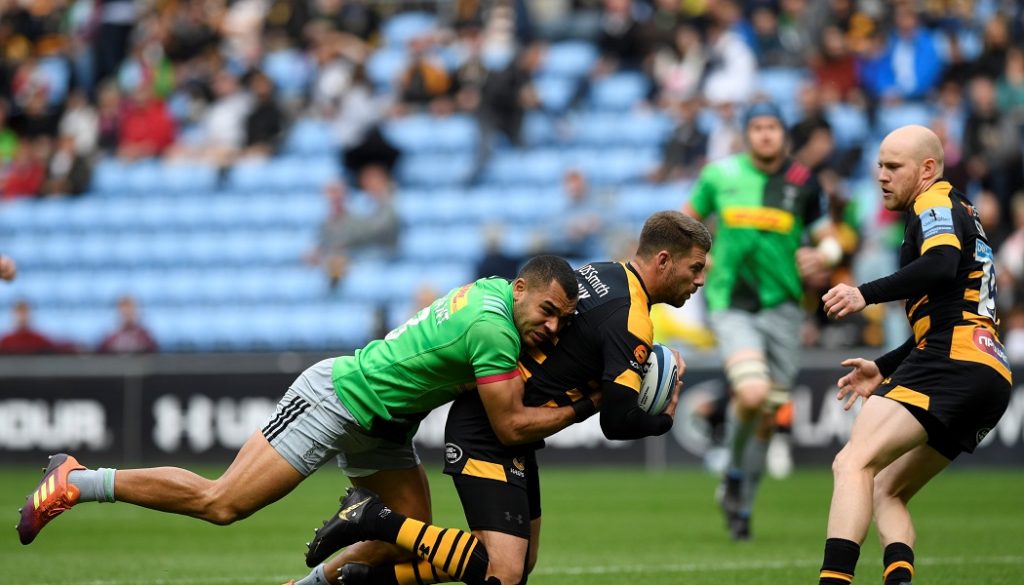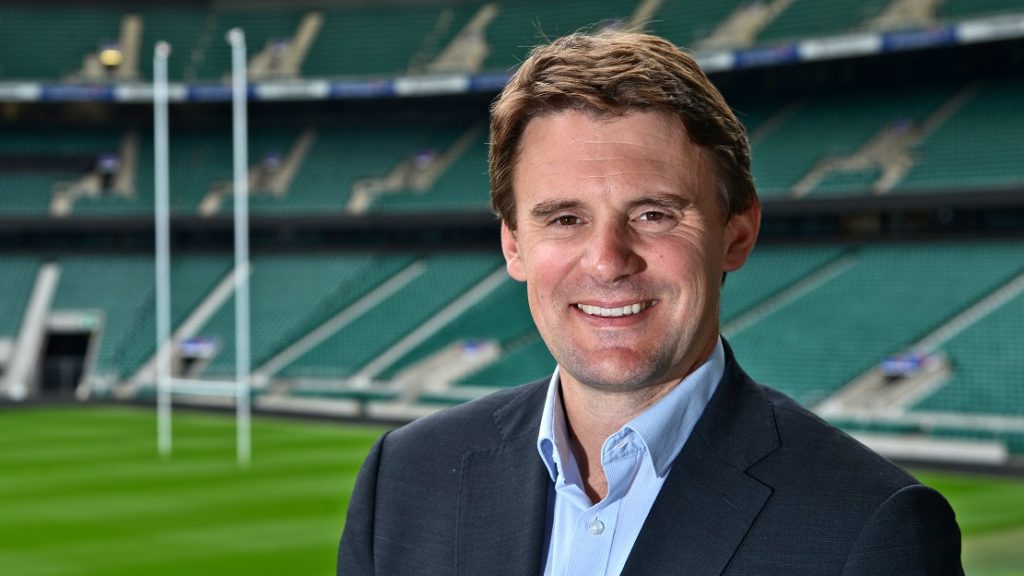On The Brink: “If Clubs Have So Little Faith in Their Match Day Experience They Should Look To Themselves”
October 18, 2021
In his latest ‘On The Brink’ for iSportConnect, Richard Brinkman questions whether one league is not quite getting it right when it comes to their current broadcasting model…
It’s over 150 years since Charles Darwin wrote “It is not the most intellectual of the species that survives; it is not the strongest that survives; but the species that survives is the one that is able best to adapt and adjust to the changing environment in which it finds itself”.
However, these words could have been written yesterday when one observes how some of the UK’s leading sports have responded to the dynamic environment they currently find themselves in.
“Another factor in sport that complicates the ability to respond to external environmental shifts is that most decisions are made from firmly within the “bubble” of any given sport.”
Most sports (certainly in the “developed” world) are dealing with a range of common issues in terms of the environments in which they operate:
- Ageing populations and a more sedentary younger generation
- Ever more competition for leisure time, attention and share of wallet
- The ability and apparent thirst for people to access and share opinion, content and information immediately and remotely: a demand for instant gratification and entertainment
- A lack of capital allied to limited time and/or human resources
These are taxing and complicated inter-connected issues to try and overcome. Particularly so if you are hamstrung in your efforts by other factors.
Factors such as governance (particularly topical in football right now) and a pressure to deliver “game changing” solutions are two such pressures. More about these next week.

Another factor in sport that complicates the ability to respond to external environmental shifts is that most decisions are made from firmly within the “bubble” of any given sport – but, as we can see, are massively impacted by “macro” factors beyond the “bubble”. This puts immense pressure on leaders of sports bodies. They need to be one part visionary to take into account such macro factors; and in other parts diplomat and juggler in dealing with often noisy and needy stakeholders who, in the main, have the luxury of considering just one part of the “bubble” (i.e. their club, participation, broadcast, finance etc).
As we have just seen with the Chairman of the ECB getting this balance wrong can have serious consequences. Equally, when such leadership fails, or is missing, poor outcomes are inevitable.
READ RICHARD’S LAST PIECE: The Three Themes Established By Sports Bodies Who Have Exited COVID Positively
This appears to be what has happened to one of my own favourite sports – Premiership Rugby, and, in particular, the broadcast coverage which is so critical to its continued well-being.
Premiership Rugby is a well-run and well-organised event, consistently delivering compelling sport that is both competitive and entertaining. With a very lean centralised team and good partners they have developed an excellent product which has been superbly marketed and presented – mostly by a bold broadcast partner in BT. In other words, it was one of the more intellectually advanced species in terms of its approach to growing and popularising its sport when it took a risk on a partner that was at the time small and new but willing to offer significant support.
They understood there was huge benefit in explaining and demonstrating not just the mechanics of what is a relatively complicated game but also its ethos and values. BT was a new and willing partner in this mission and they set the bar that most international rugby has been trying to reach ever since.
“It appears to be a very short-sighted decision unlikely to benefit anybody in the long-term.”
Programming was consistent and reliable – people knew what to expect, where to find it and when. This is a very compelling quality to sports fans – most of whom are deeply conservative about their sport. Anyone who has ever worked at a major venue or football club will tell you that trying to alter habits around attendance and consumption (be it beer, food or any kind of media) is extremely testing. You can literally pay them to change and they still won’t!
However, PR have been without an active CEO for a while now. They last week announced the appointment of Simon Massie-Taylor to the post, but his start date is yet to be confirmed. Meanwhile, I am left scratching my head at this season’s broadcast coverage. It feels like we have regressed back to 2010! It is very frustrating to see.
Terrestrial highlights regularly shown at 7pm on Channel 5 on a Monday are no longer. It is an extraordinary decision at a time when many sports would literally kill for terrestrial coverage. I understand that by having to “give up” around five live games per season Premiership Rugby are, in effect, subsidising this coverage. I also understand that any cost-saving is likely to be eagerly swallowed up by the clubs after the pandemic. Nonetheless it appears to be a very short-sighted decision unlikely to benefit anybody in the long-term. Would an effective CEO have been able to better present the bigger picture and resist the short-term pressures?
Over the pandemic all games were streamed live on BT’s Extra channels – with the traditional three main slots (Friday evening, Saturday pm and Sunday pm) given the full production treatment on the main channels. Now, the streaming has gone as well. One can only see the main three games per weekend. There will be many like me – if Saints are not one of the teams featured – my viewing is only very occasional.
Obviously, this unwillingness to stream every game now that fans can attend at grounds is down to the tired 1990s thinking about protecting live attendances. If clubs have so little faith in their live match day experience that they think fans will not attend if they are live on TV they should look to themselves – not deny the end consumer or, even worse, potential fan. There is plenty of other sport to follow – not to mention alternative entertainment sources.
Certainly many of the more local “town” clubs that play in their own stadiums should be selling out every league home game (and mostly do). If the grounds are not full (and rocking) they should look at pricing and ticketing. This is why I was not at Franklins Gardens this last weekend and why, I assume, there were some 1500 empty seats. The team are flying, the opponents were an entertaining side, demand and popularity locally are huge – there is little excuse. The approach to ticketing and pricing appears to have grown organically over the years to the point where, in my view, it makes no sense and offers little value. I would be willing to bet that they are not alone in their approach.

However, its not just a reduction in rugby action that will have an impact. Rugby Tonight used to be an exemplar of how shoulder programming can actively help build a sport. Now it is such an anaemic version of its former self that even a broadcaster as talented as Craig Doyle can barely keep it afloat.
Gone are any highlights, demos, lifestyle pieces, club focus, any interaction with players from various levels and even enthusiasm from pundits such as Lawrence Dallaglio. In its place a 30-minute piece from World Rugby about player welfare and their guidelines to professional clubs as to how much contact training players should do a week. Charming a man as Alan Gilpin is (even over Zoom), and rugby badger as I am, after five minutes this was pretty esoteric and dull. (The answer is 15 minutes a week by the way – that took 25 minutes in the programme). This week’s offering about how much rest players who went on the Lions tour should have before reappearing for their clubs was similarly painful – “each case is judged on its individual merits” was strung out into 20 minutes, to be followed by a very ethereal 20 minutes about Club DNA (they change depending on the times, status, history/heritage and success of the club – just so you know).
However, one thing Craig did get right is to point out that you can still see the weekends highlights on BT. So what are people complaining about? They are complaining because nobody is going to stay up until 11pm or later on a Sunday to watch them Craig!
Apparently, and it took a fan like me two weeks into the season to find this out, I can also watch coverage and highlights on part of Premiership Rugby’s website. Just because you call part of your website ‘.tv’ it does not make it TV! For many like me it means a second-rate viewing experience on a tablet, laptop or desktop. Therefore, I have not even tried and I am a pretty enthusiastic rugby fan. This is a move of last resort that will not build following so, please, let’s not try and dress it up as a way to reach younger audiences, etc.
“To put it mildly, the removal of streamed access to all live games and regular terrestrial highlights is very parochial and narrow thinking.”
To put it mildly, the removal of streamed access to all live games and regular terrestrial highlights is very parochial and narrow thinking. The reduction in regularity, quality and volume of support programming is damaging. Guys – you have a fantastic product that is exciting, authentic and entertaining – get it in front of as many as possible as often as possible. Your thinking is akin to the makers of Doom Bar only selling it in pints in Cornwall and expecting it to grow. Get it in front of as many as possible in as many different forms as possible!
This is a classic case of a sport adjusting and adapting just as Darwin suggests. However, it is adapting to internal factors within the sport, not adjusting to the external factors in the shifting world that it is part of. It is only by adapting to external threats and pressures that a species survives, not by feathering its own nest better. In order to thrive and grow you must first survive.
One wonders if this is a situation borne out of a temporary lack of leadership at PR? Certainly the incoming CEO is one of the good guys and perhaps his experience within rugby will mean that the terrestrial highlights issue will quickly present a simple four on two that can be converted for an early win?
Look out for Richard’s next ‘On The Brink’ next Monday…

